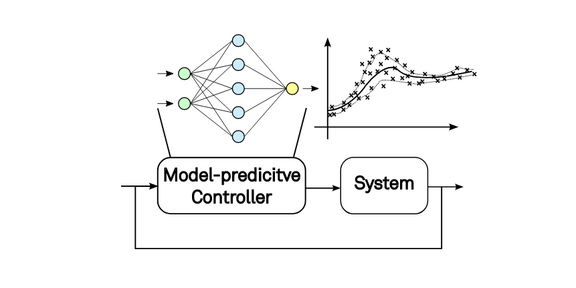Master Thesis: Development of a Surrogate Model-Based Controller Addressing Model Uncertainty and Physical Constraints
- Thesis offer

Introduction
Surrogate models offer a valuable approach in developing efficient, model-based control algorithms, primarily by reducing computational complexity. However, these models have limitations; they often struggle to accurately capture the true dynamics of systems. This is despite the fact that they are derived from well-established first principle models, which are sampled for this purpose. Furthermore, the parameters of these first principle models are usually estimated with only a degree of accuracy, introducing an element of uncertainty. This thesis aims to address these challenges by employing two innovative techniques: conformal prediction and implicit neural network layers. Conformal prediction is an advanced method for quantifying model uncertainty [1], while implicit neural network layers help in restoring the physical accuracy lost in surrogate models [2]. The integration of these techniques aspires to create a more robust and efficient surrogate model-based control algorithm, effectively bridging the gap between theoretical precision and practical applicability.
Objectives
- Implementation and validation of a developed machine learning algorithm to quantify the uncertainty surrogate models of parametric uncertain nonlinear reactor models
- Development of a mass and component balance recovery strategy using implicit neural network layers
- Development of a model predictive controller, using uncertainty quantifying surrogate models
Prerequisites
- Student in the field of Chemical Engineering or related disciplines
- Good knowledge in Python and machine learning libraries like "pytorch" and "tensorflow"
- Good knowledge in modelling of chemical reactors
- Good knowledge in optimization
Literature
[1] Y. Romano, E. Patterson, und E. J. Candès, „Conformalized Quantile Regression“. arXiv, 8. Mai 2019. Zugegriffen: 19. Juli 2023. [Online]. Verfügbar unter: arxiv.org/abs/1905.03222
[2] B. Amos und J. Z. Kolter, „OptNet: Differentiable Optimization as a Layer in Neural Networks“. arXiv, 2. Dezember 2021. Zugegriffen: 21. November 2022. [Online]. Verfügbar unter: arxiv.org/abs/1703.00443
Other
Beginning: As soon as possible
Duration: 6 months
- Your work will be in English and you can communicate with your supervisor in English or German.
- Please e-mail your application including your CV, BSc and MSc grades.
- Please contact the responsible people for any further questions. All details can be discussed in a personal consultation.


